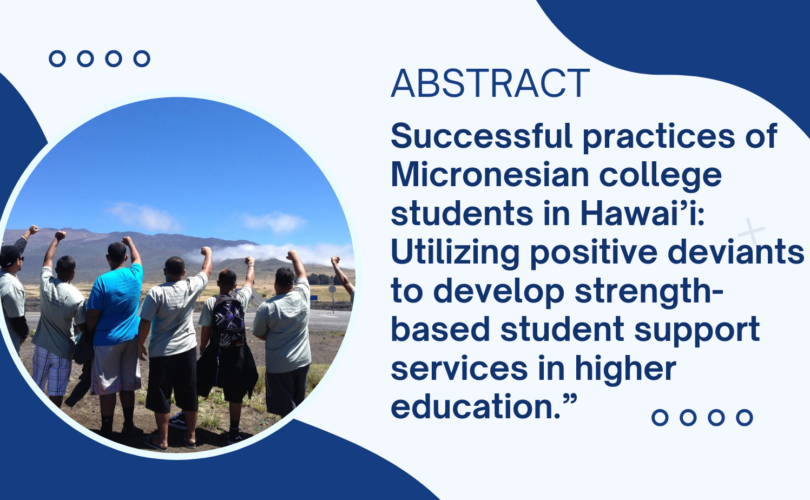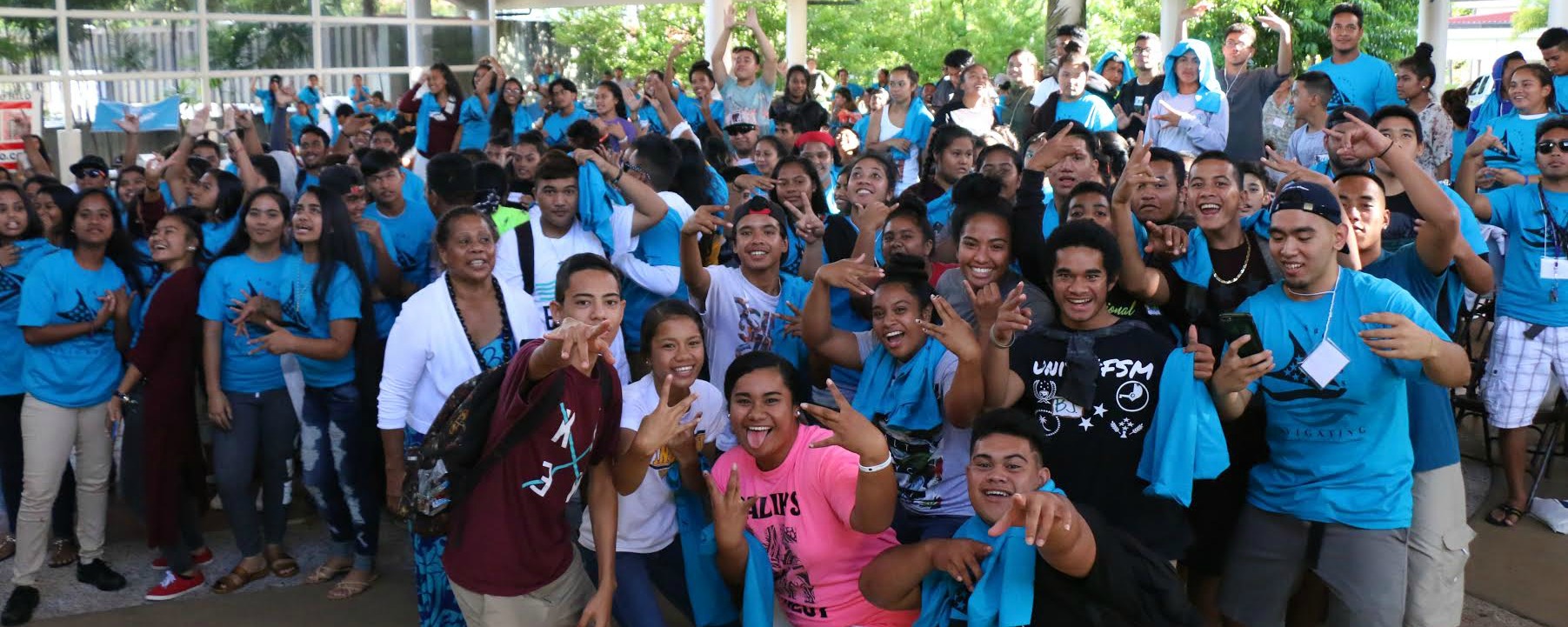After 3 years of coursework, research, writing, I didn’t realize how hard it would be to synthesize the dissertation into a maximum 350-word abstract. Here’s the final version of the abstract for my dissertation entitled, “Successful practices of Micronesian college students in Hawai’i: Utilizing positive deviants to develop strength-based student support services in higher education.”
Abstract
Since the 1986 ratification of the Compact of Free Association between the Federated States of Micronesia (FSM) and the United States (US) government, large numbers of Micronesians have migrated to the US in search of better education, healthcare, and economic opportunities for their children. Similarly to other new immigrants to the US, Micronesians face discrimination and other negative stereotypes. While there is a growing number of Micronesians enrolling in higher education in Hawaiʻi and other US institutions, very little research has been conducted within this population. Like many institutions of higher education, student support services for Micronesians are framed entirely by deficit-oriented models often reflecting data such as low retention and graduation rates. Robust and culturally appropriate data collection methods that are more informative and responsive are sorely wanting.
This qualitative study applies the Positive Deviance theoretical framework to understand the strategies and behaviors enabling success for twelve Micronesian college students at the University of Hawaiʻi at Hilo. What emerged from the study were uncommon strategies and attitudinal adjustments about individual academic success, cultural adaptations to communal obligations in a largely individualized learning environment, maximization of limited resources, and self-regulating behaviors to build self-efficacy.
The results of this study have significant implications for practice in institutions of higher learning particularly when supporting Micronesian students. It provides information and strategies for faculty and staff to utilize in developing strength-based approaches to support student success particularly for migrant students from the Pacific. The findings also provide valuable information for Micronesian students who strive to develop similar self-regulatory strategies and attitudinal adjustments to enable their success.




